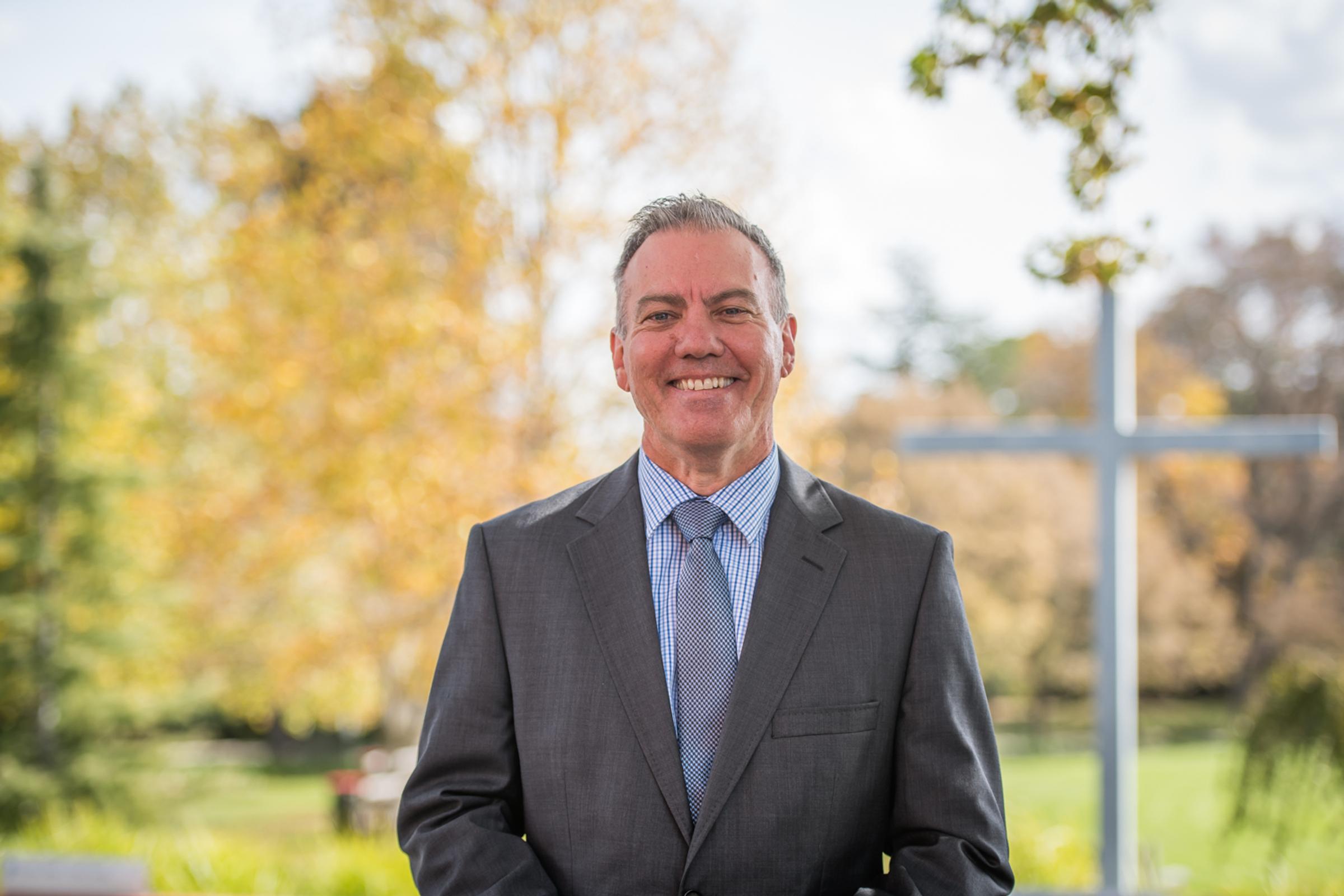Message from the Chaplain

A reflection for our incumbent Prefects and Leaders.
Courage, obedience and fear are cousins. Learn to live harmoniously with them.
This Sunday’s readings come at a time when we are about to induct the new Prefects and Leaders of Kinross Wolaroi School for the coming year. What we read in the Letter to the Hebrews (5: 5-9) and in Mark’s Gospel (10: 35-45) are powerful messages about what it is to be a true leader.
The letter to the Hebrews was in fact a sermon, not a letter. It was written sometime in the last third of the first century, around the same time as the Gospels. In this particular passage, we read the writer’s reflections on Jesus’ suffering before his arrest which inevitably led to his crucifixion.
The writer recounts that Jesus “offered up prayers and petitions with strong crying and tears to him who was able to save him from death”. This took place at the Mount of Olives after the last supper. Jesus prayed, “Father, if you are willing, remove this cup from me. Nevertheless, not my will, but yours, be done.” In Luke’s Gospel, it is said that an angel came to strengthen him, and Jesus, “in agony, prayed more earnestly. His sweat became like great drops of blood falling down on the ground”.
Those who are not familiar with the complete story of Jesus’ life and death, might be inclined to interpret Jesus’ prayer and perspiration as a lack of courage and of fear. There is no doubt that Jesus was afraid and he did want to escape what is ahead of him. Imagine yourself in the position of knowing that you were going to be betrayed, arrested, accused, tortured, humiliated and crucified while also knowing that you had done no wrong. But in this fear and desire to escape, Jesus showed extraordinary courage. Remember that he did not avoid his destiny but followed through with the cross to fulfil God’s plan. Courage is not the lack of fear, but doing what is needed in spite of fear.
Jesus’ submission to the will of God is an act of courage and obedience. The writer states that “though he was a Son, he learned obedience by the things which he suffered” (v. 8). We are surprised to see that Jesus “learned obedience.” Wasn’t he always obedient?
To refer to the Gospel of Luke again, we are given a glimpse of Jesus as a boy, going with Mary and Joseph to Jerusalem, where he separated himself from Mary and Joseph to amaze the teachers in the temple with his understanding. Mary and Joseph went a day’s journey before they realized that he was missing and then they had to make the journey back to the city, worrying all the way if they would find him.
When they found Jesus, Mary asked, “Son, why have you treated us this way? Your father and I were anxiously looking for you” and Jesus cheekily replied, “Didn’t you know that I would be in my Father’s house?” It is said that from then “Jesus increased in wisdom and stature and in favour with God and men” (Luke 2:42-52). So from the beginning, Jesus had a sense of destiny but he had to grow in obedience.
Even though Jesus prayed that the Father might remove the cup of suffering from him, he did so knowing that the Father would not and could not do that without aborting the very purpose of Jesus’ incarnation. As much as Jesus sought to avoid the suffering and the cross, he was obedient and did what was required despite his fear. In the words of Paul, in his letter to the Philippians, Jesus “emptied himself, taking the form of a servant, being made in the likeness of men. And being found in human form, he humbled himself, becoming obedient to death, yes, the death of the cross” (2:7-8).
It is this same courage that is put before the disciples in Mark 10: “whoever wishes to become great among you must be your servant, and whoever wishes to be first among you must be slave of all. For the Son of Man came not to be served but to serve.” To be disciples, to change our environment, is to be courageous despite ourselves. Courage, obedience and fear are cousins.
I pray that the incoming Prefects and Leaders reflect upon the message of this week’s readings because true leaders live harmoniously with courage, obedience and fear. To transcend fear of being the voice of justice and to act in the interest of the other are the purest qualities of a true leader. It is a tough gig. May the example of Jesus be their inspiration and strength.
Phil Worrad
Chaplain
